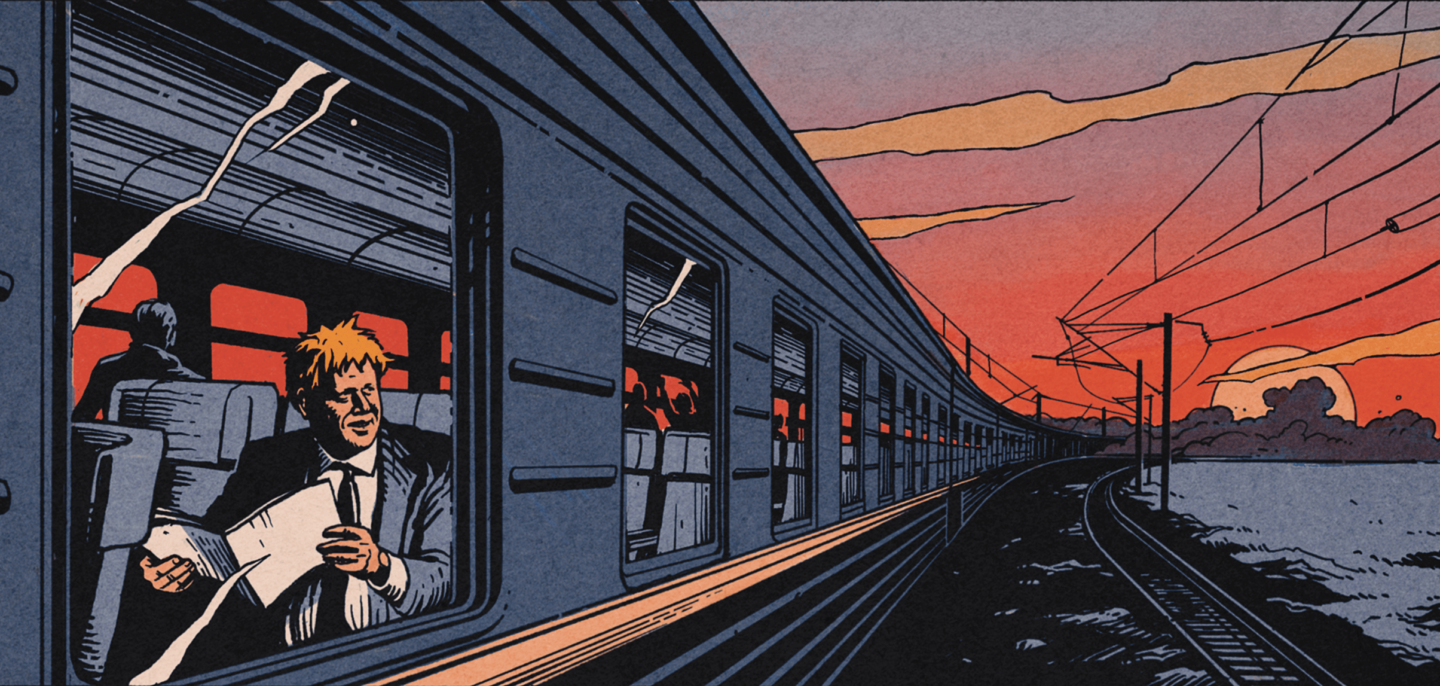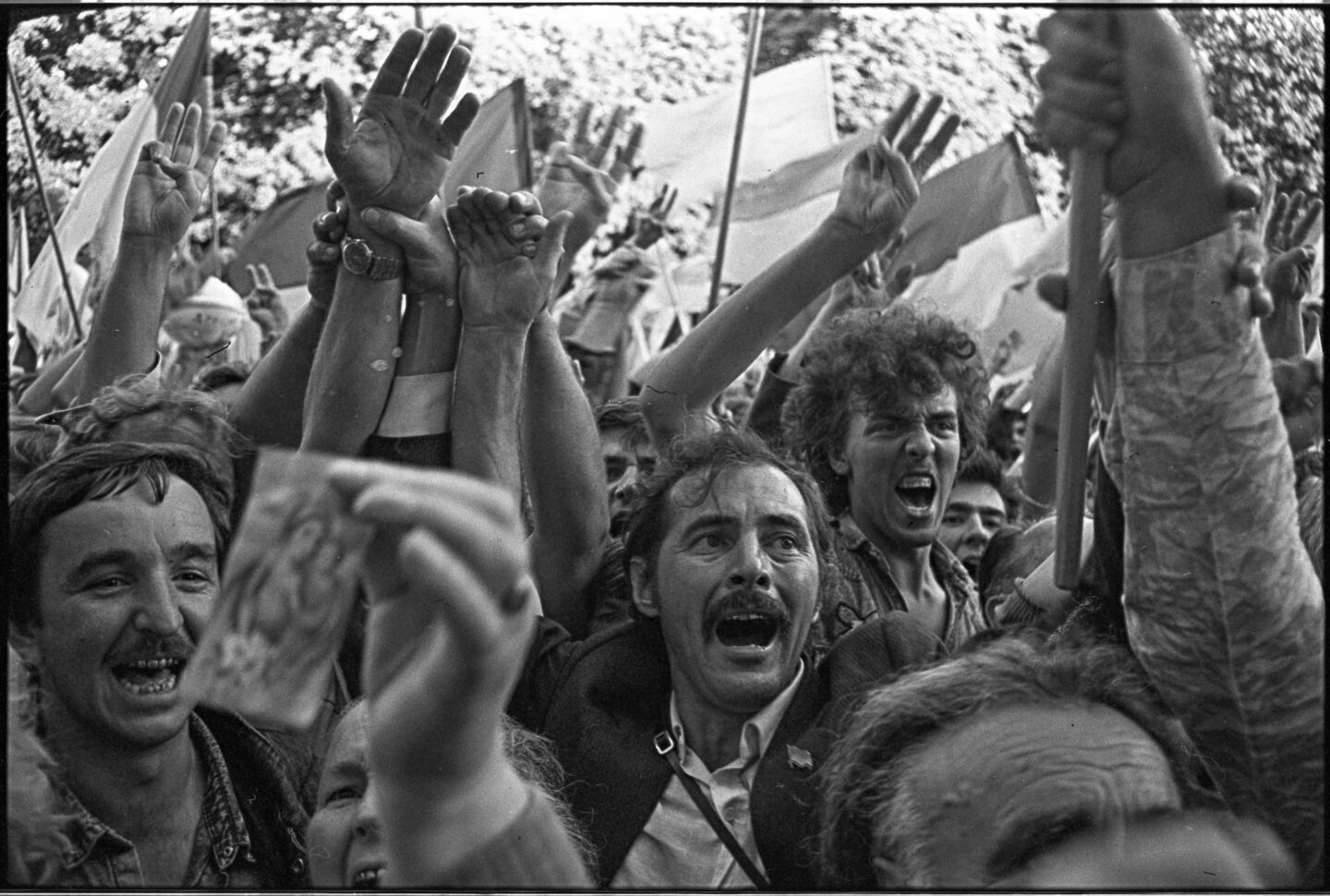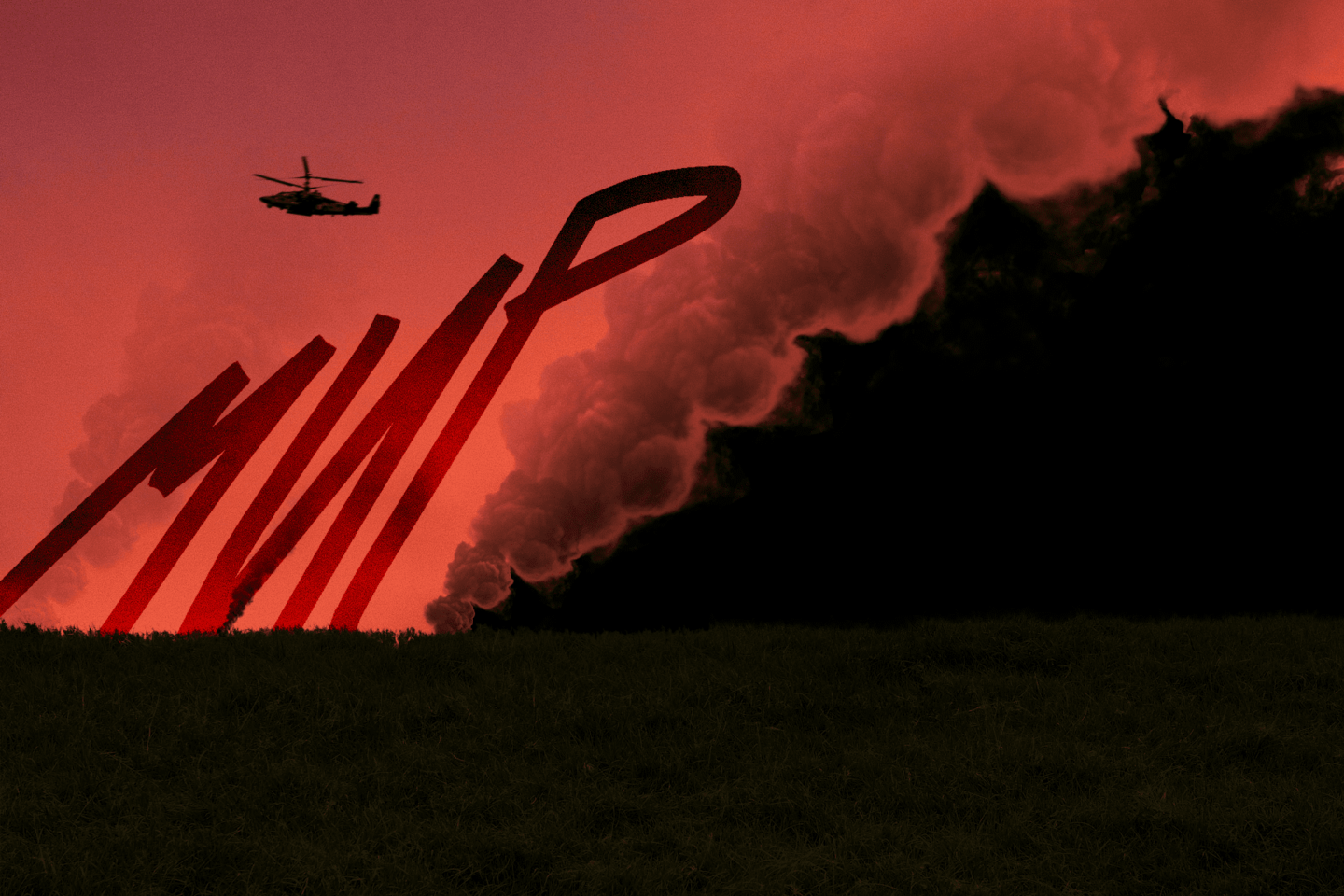I was always outraged at the fairy tale about Cinderella: why does the spell only work until midnight? Why does this magical miracle have such an unfair time limit? Why should the hand of a clock decide how long happiness lasts? I couldn’t stop thinking about this fairy tale as we were working to fulfill the dream of a boy with cancer from Cherkasy.
At TSN [a Ukrainian news show on 1+1 channel — Ed.], we had a project called “Make a Dream Come True.” Parents wrote about their child’s dearest dream on the website — or the children themselves wrote in — and the producers tried to make those dreams come true. A dedicated team worked on the project, with TV host Lidiya Taran overseeing the fulfillment of the children’s dreams.
The project captured incredible stories all the time: dreams of traveling, flying in hot air balloons, meeting favorite race car drivers or singers.
For example, during an interview, the beautiful Sasha talked about how she dreamed of seeing Paris — and eventually, she was able to visit the Eiffel Tower. The girl had been battling cancer for 12 years.
Or Hlib. He dreamed of becoming a police officer — a four-year-old boy in a mask that protected him after chemotherapy, dressed in a tiny police uniform sewn specially for him. He rode a motorcycle ahead of a formation of patrol officers and received his own name badge.
And there was Vlad, who dreamed of becoming a firefighter but couldn’t breathe without a ventilator. Among his toys were fire trucks and fire extinguishers; he loved playing at rescuing people and animals. And so he came from Kharkiv to Kyiv, where a rescue vehicle was waiting for him at the train station — and he spent the whole day commanding its crew.
Sometimes, of course, children asked for smartphones, but the most touching and powerful dreams were the immaterial ones. At the top of the list were the dreams of meeting Ukrainian celebrities.
One day, I got a call from Vika — a journalist from Cherkasy who had long been helping children fighting cancer. Recently, Vika received a presidential award for her volunteer work. These days, most of her requests are for black body bags — for those who fell — and tourniquets for those still in the ranks. Her stories are filled entirely with the war. But before that, she used to care for terminally ill children — the sickest ones.
Vika asked if we could help make one boy’s dream come true and introduce him to Dmytro Komarov [a Ukrainian TV journalist and documentary filmmaker best known for his travel program “The World Inside Out” — Ed.] and Dzidzio [a Ukrainian singer, actor, and film producer known for his comedic stage persona and pop hits — Ed.]. To be honest, we’ve had many kids who had the same exact wish. I found out that there were no Dzidzio concerts planned anytime soon, and Komarov was traveling somewhere, so I just asked how much time we had to make this happen.
“Natalia, we don’t have any time at all,” was the reply.
So, we went to Cherkasy.
*
Our dreamer turned out to be Mykola Halushko, a 17-year-old from a village in Cherkasy Oblast. The disease reached his lymph nodes, but seven months after their removal, it returned in its most severe stage. The boy practically lived in the cancer care center. His mother stayed with him at the hospital, while his father and two brothers waited at home.
But that day, we gathered the whole family together. We decided to start the celebration early in the morning. We bought grapes, candy and balloons at the store and spent a long time choosing a cake — real “cake-against-all-illnesses,” the kind that works better than chemo. Vasko, the youngest brother, chose a cheesecake with candied fruit and chocolate, and the saleswoman assured us that it was exactly the kind of cake we needed.
Children wearing masks gathered in the kitchen of the hematology department. They filled the table with sweets and kept asking Vasko not to make the balloons so big that they burst.
Vika and the cameraman went to the ward of our dreamer, Mykola, pretending to be journalists from Cherkasy who wanted to ask him about his dreams. Mykola played them his favorite Dzidzio song and told them about Komarov’s travels. Then he went into the kitchen with the film crew, and there it was — “S-U-R-P-R-I-S-E!”
Mykola hugged his brothers. He treated the nurses to candy, then cut a piece of cake and took it to the neighboring ward, where his friend was lying under the IVs.
Mykola’s doctor agreed to let him go to Kyiv with us, but on one condition: he had to return to the clinic that same day. “He’s undergoing radiation therapy. You’re taking a big risk,” she said. “But he really needs a miracle.”
Mykola didn’t know the whole truth, or at least pretended not to. According to the story, we were taking him to a hospital in the capital. On the way, we were listening to Dzidzio’s music.
*
I always worried whether the surprise we planned would really make them happy. Once, after filming, a boy whose dream we’d worked so hard to fulfill admitted he didn’t feel any joy: “I don’t care. It was my mom who wanted it — not me.”
But sometimes it works the other way around. From experience, I know that children don’t always care about celebrities or big events. Sometimes, a child just wants to appear on TV — even if they barely watch it themselves. Once, I went to a robot exhibition and felt sad that the children from Okhmatdyt couldn’t come to see the robots dance and sing. The event was held around Christmas, and the organizers agreed to bring the robots to the hospital instead. But on the day of the visit, tragedy struck — the largest robot ran out of power and couldn’t perform for the kids. The owners promised to fix it, but only the next day. One of the boys was inconsolable: he was being discharged and had to return to his village that same day. “No one will believe me when I say I could’ve been on TV!” he said in despair.
So we came up with a plan. We filmed him watching the robots and later added that footage to the program. The next day, the children squealed with delight as the robot sang and recited poetry, followed the nurses around, and told them with playful charm, “You look 18!” And somewhere in his native village, a happy boy was watching that same program — there he was, on TV, looking at the robot.
You never really know whether a person will feel happy when their dream finally comes true — or what, exactly, will make them happy.
Being a “wizard for a day” is much harder work than it seems.
Once, we took some children to visit their seriously ill mother, whom they hadn’t seen in a long time. On the way there, we imagined what a joyful reunion it would be — all the kisses, the tight hugs, the laughter. But when we arrived, the mother’s first question was whether the cow had calved. The children didn’t know how to respond. I cried — it felt, in that moment, as if she wasn’t happy to see them. Later, I came to understand that love can take many forms. You can show it through endless kisses, or through worrying whether your children have fresh milk.
*
When it came to Mykola’s story, the thing we feared most was death. Psychologists sometimes send us journalists recommendations — what not to ask people who’ve lost their homes or returned from captivity. “Never ask them about plans for the future,” they write. Because what plans could they have when everything around them is so uncertain?
But Mykola’s plans were clear, even practical. A village boy, he had a concrete idea of a profession that could bring both a steady income and the respect of his neighbors. Mykola wanted to become a tractor driver.
“You get up early in the morning,” he told us, “have breakfast, climb into the tractor, and off you go into the field!”
This dream says so much. It’s about recovery — about victory over illness, about growing up and becoming independent. Here he is, alive and healthy, with all the time in the world to plow an open, endless field.
Right now, the dream about Dzidzio or Komarov feels more attainable than the one about a tractor in the field. That’s why we’re focusing on making that one come true.
*
After chemotherapy, Mykola had no hair, the disease deformed his jaw, and he was left with a large scar across his neck from the lymph node removal. But Lidiya Taran, curator of “Make a Dream Come True,” came up with a clever plan: the young man would walk the red carpet at the “Viva. The Most Beautiful” event [an annual tradition of Viva! magazine picking the most beautiful people in Ukraine, elected by readers’ votes — Ed.]. Back then, all the biggest stars flocked to this awards ceremony. Mykola, dressed modestly in jeans and a hoodie, was embarrassed: how could he attend this kind of gathering?
The transformation takes 15 minutes. Mykola comes out to us wearing a blue suit and a white shirt. The stylists deliberate: tie or bow tie? It’s like a fairy tale — with a wave of a wand, Mykola becomes as handsome as a prince on his way to the ball. Now, the wand must work its magic on the pumpkins and mice: a carriage is needed.
We wait by the back entrance to the Palace Ukraine concert hall, where Mykola will be driven up to the red carpet in a large, gleaming car. A crowd of fans is already gathered, waiting for the stars of stage and screen to arrive. Mykola is joined by the hosts of “Breakfast with 1+1.” He walks happily, confidently — as if he’s been attending glamorous events his whole life.
The announcer’s voice echoes across the red carpet: “Please welcome Mykola Halushko from Cherkasy Oblast, whose dream is coming true today!” The crowd erupts. Hands reach out toward Mykola, and he high-fives strangers as flashes go off around him.
Inside, everyone is taking pictures. Mykola poses with TV presenters Kateryna Osadcha and Solomiya Vitvitska, then with boxer Slava Uzelkov. And then he sees Dzidzio, who hasn’t been told about Mykola’s visit. The boy freezes, smiling in awe, unable to speak. It’s hard to say what you feel for someone face-to-face — especially here, in this palace (and fairy tales always happen in palaces), where the person who needs you most is this boy.
We tell Dzidzio that Mykola is just shy — it’s his first time on the red carpet. “So what?” says Dzidzio. “It’s my first time here too. Come here.” He hugs Mykola and invites him to his concert.
As they talk, someone spots Dmytro Komarov in the crowd. He’s not off traveling after all. The ceremony is about to begin, so there’s little time. Komarov asks Mykola where he dreams of going. “To climb Hoverla,” Mykola says. “It’s minus 20 there now,” Komarov smiles. “You’d need to be a professional mountaineer. But you could go in the spring.”
Soon, Mykola’s head begins to ache. The concert is about to start, but we can’t stay — he has a three-hour drive back to the cancer center ahead of him. He has to return there tonight.
We get on the bus. Mykola changes into his usual jeans and hoodie. His brothers, mother and father are with him. As we drive away, the TV broadcasts live coverage of the most beautiful stars walking down the red carpet. Among them is Mykola.
I don’t know what brought him more joy — the surprise party organized for him and his friends at the hospital, the opportunity to go on a trip with his whole family and be close to his brothers and parents, the hugs and photos with celebrities, in which he smiles, unashamed of his scars, the red carpet, where girls his age scream just because you walk on it, or something else that we will never know about.
I am telling this story now so that people can understand: even if someone you know has minimal chances of survival, even if they need radiation, medication, and therapy, they still have the right to fulfill their dreams, big or small. They may have very little time left, but they could still enjoy some ice cream on a mountaintop, or blow soap bubbles in the Colosseum, or go skydiving, even when they no longer have the strength to stand up straight.
Making your own dream come true is usually a moment of great happiness. But try making someone else’s dream come true, and it will make you many times happier. And then, try to stop doing it.
*
The next day, Dmytro Komarov found me at a coffee shop in the channel building and said, “I’ve arranged for a helicopter.” He stood there and explained that as soon as the snow melted a little and the wind died down, we would fly Mykola to Hoverla. This wasn’t for any project or TV show, he said — it was “his own responsibility.” After all, this was about a dream. I stood there, murmuring that I’d tell Mykola, but we didn’t have much time. Dmytro just said, “Tell him to wait until spring, okay?”
On March 2, at 10:17 a.m., I got a message from Vika: “Natalia, hello. Mykola passed away today at 4:25 a.m. He died peacefully in his sleep. He was looking forward to the first day of spring. He believed he would soon go to Hoverla… Those emotions gave him almost a month… They say only the best people die in their sleep.”
Seven years have passed since that message, but I still sometimes imagine a tractor rolling across the highest cloud in Ukraine, with our Mykola behind the wheel — smiling, in his blue suit and tie. There is no pain there. And no ticking clock.
Translated from the Ukrainian by Liubov Kukharenko




